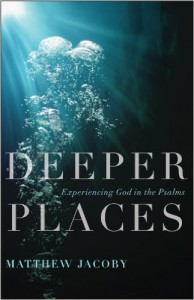The Church as Lazarus – Following Jesus in the Emotional Landscape
 Discipleship is not an academic exercise. It is often, substantially, a journey through an emotional landscape. Sometimes those emotions are negative and dark: grief, suffering, pain.
Discipleship is not an academic exercise. It is often, substantially, a journey through an emotional landscape. Sometimes those emotions are negative and dark: grief, suffering, pain.
This shouldn’t surprise us. After all, to “abide in Christ”, is to be his. To follow him is to live as Jesus did (1 John 2:6) and Jesus was, and is, and was prophesied to be a “man of suffering and familiar with pain” (Isaiah 53:3). Discipleship is about “sharing in his sufferings” (Romans 8:17). There is a cost to discipleship, as Bonhoeffer (amongst many others) would say.
I’m not trying to be morose. There is joy, peace, fulfilment, happiness even, on the road with Jesus. Laughter abounds. But these are not grounded in some sort of avoidance or escape, but are comingled, intertwined, with all that comes. The joy breaks out from the grief. The tears are wiped away. The peace is beyond understanding. Glory sprouts from the suffering.
A part of my emotional landscape recently has been grief. I have grieved this week for some reason. I was confronting myself. I was encountering some of those pains, regrets, fears, and worries that get pushed down until they pop up like fungi in the damp of one’s hidden soul.
I was also grieving for the church. This has been a week in which the ugly side of us has been on display, for various reasons. The human sexuality “debate” has yet again be broached. I have had over twenty years of experiencing this particular no man’s land, and yet the vitriol, bile, and lip-curling condescension has shaken me. But my reflection hasn’t really been about #LLF (for those who know what I’m referring to); it’s a more general weariness. We love the church (local and large), and that involves care and belief. Yet the church often looks more like a phlegm-hacking pale-skinned shadow than the vivified vocational verve of the gospel we follow. Amidst self-referential ear-tickling comfort-mongering machinations I have also seen my own disintegrating compromises, conflicting responsibilities, and sheer plain finitude. For better or for worse, realistically or otherwise, that has been my recent emotional landscape.
So where is Jesus on that path? I’ve been finding him in a play of two parts:
The first part is an insight from my wife, Gill. This is not a surprise; she is regularly insightful. She took me to the story of Lazarus, who Jesus raised from the dead, in John 11:1-44.
The story may be familiar to you. Jesus is friends with Lazarus and his two sisters, Mary and Martha. While some distance away from them he learns that Lazarus is sick. He declares a hope that “this will not end in death” but it will “be for God’s glory” and his own. He delays his return. Lazarus dies. “Lazarus has fallen asleep; I am going to wake him up”, he says, “Lazarus is dead, and I am glad I was not there, so that you may believe.” There is hope; but Lazarus is dead.
Martha comes out to meet him. She presents a rational, theological engagement to Jesus. When Jesus assures here that Lazarus will be raised, she pushes that hope off into an abstract future: “Yes, I believe that we will all rise again.” Lazarus is dead, Jesus, but we get the theory.
Mary has not come to greet Jesus, but he sends for her. Mary readily emotes. She collapses at his feet, and there is a tinge of bitterness to her voice: “Lord, if you had been here, my brother would not have died.” It’s only half a step from “Where the hell have you been! I thought we could trust you! I thought you brought hope!” Lazarus is dead, Jesus, where have you been?
Martha grieves. Mary grieves. And, even though he knows what is going to happen, Jesus wept too.
Here’s the insight in this story for me: We are grieving for the Western Church like Mary and Martha grieved for Lazarus. Good people have been plugging away at gospel ministry for years, the church has been cared for in its fitness and its brokenness, its strength and decline. We have done our best to be faithful to our task, but in the end, we know, that none of it matters, unless Jesus shows up.
Our gospel preaching is nothing, if Jesus is not in it. Our social action. Our pursuit of what is good and holy. Our cries for justice. Our restructuring. Even our self-giving to one another in unity and peace-making. All of these virtues are not enough, except if the Spirit of Jesus be in them. There are times when we look at ourselves, locally, nationally, within our Western world and there is deathliness about us. And we feel the bitter tears. In that landscape, the blurted out “prayer” of the most visceral sort is: “Lord, when are you going to show up? Lord, why are you waiting? We can’t change hearts. We can’t overcome the power of sin. But you can! Where have you been?” We struggle to even pray “Revive us, Oh Lord” except in Martha-like abstract theory.
The church is Lazarus. And we are allowed to grieve. Yes, there is hope in this analogy, and we don’t ignore it: Lazarus is called back to life, away from the stench of death; a living reflection of Ezekiel 37. Jesus is glorified, and his people believe. And now, Jesus will be glorified, life will come. Yes there is hope. But let’s not rush quickly there. Right now can be a time for weeping.
The church is Lazarus. And Jesus weeps. And that’s OK.
It brings me to the second part. I have tried to imagine Jesus weeping: tears rolling down middle-eastern skin, cheeks and beard. Were they gentle tears? Or sobbing? Were they sympathetic tears for Mary, or tears of his own response, akin to the woundedness he cried over rebellious Jerusalem (Luke 19:41)?
My task as a disciple of Jesus is to follow him. How then, may I be led by his emotions? What would I learn if I could watch his passions, see his tears, and hear the prayers he whispers through salt-dripped lips? What may I glean from his demeanour when he encounters stress, grief, injustice, and utter weariness? Where can I go to learn from him, and be his disciple?
The gospels are good place to start. But the Scriptures also give us a fulsome emotional repertoire: the Book of Psalms.
Let me get there somewhat theologically: Jesus is the Messiah, the anointed heir of the messianic king David. David points to Jesus. The psalms of David are the prayers of David. They are the prayers of a messiah. Prophetically, therefore, they are the prayers of Jesus. The New Testament often uses the psalms this way. Take a look at Hebrews 1:5, quoting Psalm 2:7 – “You are my Son, today I have become your Father.” Keep reading that Psalm and on the lips of David it is somewhat pretentious, but on the lips of Jesus it is simply, right: “I will make the nations your inheritance, the ends of the earth your possession.”
So now I can read the psalms, and hear them on the lips of Jesus in the emotional landscape. In the psalms is faith-filled joy, faith-filled peace, faith-filled anger, faith-filled weariness, faith-filled grief. In the psalms, the Spirit of Jesus is praying, and I can learn from what is prayed.
I can see Jesus expressing gentle but firm defiance against political power in Psalm 2:1-3: “Why do the nations conspire and the peoples plot in vain? The kings of the earth take their stand and the rulers gather together against the Lord and against his Anointed One. ‘Let us break the chains,’ they say, ‘and throw of the fetters'”
I can see Jesus putting faith against fear in Psalm 3:1-3. I wonder if these were amongst his groanings in Gethsemane?: “O Lord, how many are my foes! How many rise up against me!… But you are a shield around me, O Lord; you bestow glory on me and life up my head.”
I can see the protective frustration of Jesus in Psalm 4:2-3: “How long, O men, will you turn my glory into shame? How long will you love delusions and false gods? Know that the Lord has set apart the godly for himself; the Lord will hear when I call to him.”
I can hear the weariness of Jesus and a sinking into his Father’s arms in Psalm 5:1-2: “Give ear to my words, O Lord, consider my sighing. Listen to my cry for help, my King and my God, for to you I pray.” I wonder if these were in his laying-awake, or his mornings when he sought solitude with his Father.
In some psalms I think we see the prayers of Jesus on behalf of his people; the Spirit gives voice to the collective, broken, Body of Christ: “O Lord, do not rebuke me in your anger or discipline in your wrath… My soul is in anguish. How long, O Lord, how long?” (Psalm 6:1-3). Is this a glimpse of Christ’s intercessions for us before his father (Romans 8:34)?
“O Lord, our Lord, how majestic is your name in all the earth!” (Psalm 8:1) and I hear my Saviour’s delight.
Right now, anyone who cares for the Lord, and for his people, is likely passing through an emotional landscape. Here, as ever, the Lord weeps too. Here, as ever, Jesus teaches us his way.
Photo by Joshua Earle on Unsplash



